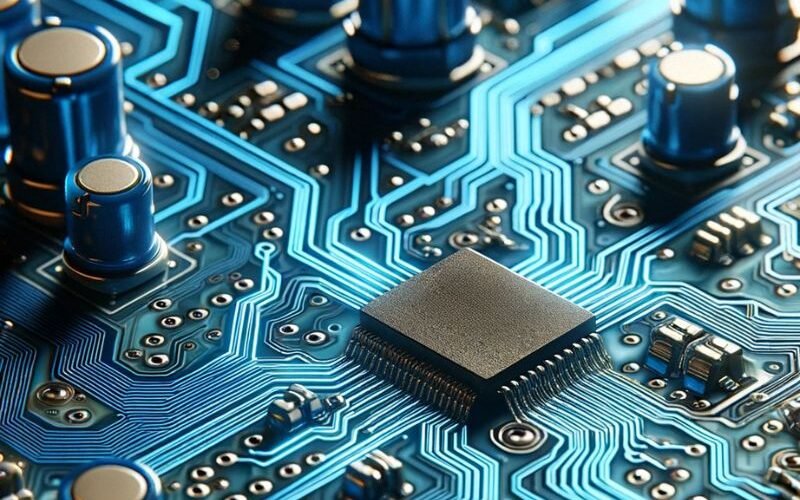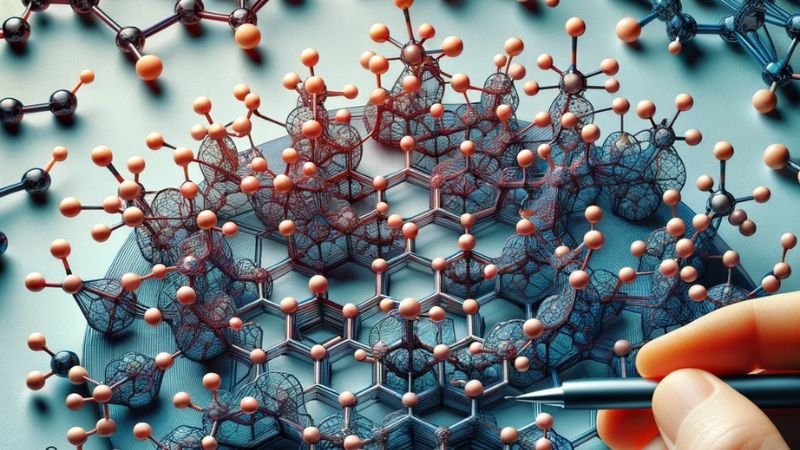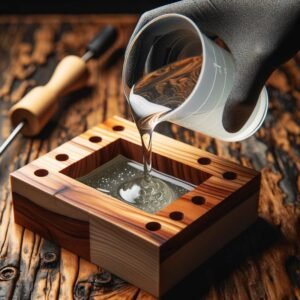Isingeniso
I-Phenolic resin, impahla enethonya elinethonya emhlabeni wokuhlonza umjovo, liphethe amandla okubumba imikhiqizo emikhakheni ehlukahlukene. Noma ngabe usezitayeleni, i-elekthronikhi, noma ekhishini, ukuqonda izakhiwo ezihlukile kanye nokusetshenziswa kwe-phenolic resin kungathuthukisa kakhulu inqubo yakho yokukhiqiza.
Yini i-phenolic resin?
Phenolic resin, evame ukubizwa ngokuthi “Phenolic,” Ingabe i-polymer yokwenziwa ehlukahlukene yokwenziwa eyaziwa ngokuvikelwa kwayo okuhlukile okuvikelekile namandla okusebenza. Yakhelwe ngokuhlanganiswa kwe-phenol kanye ne-formaldehyde ngaphansi kwezimo ezilawulwayo, okuholele ku-polymer edlale indima eyisisekelo embonini yamapulasitiki amashumi eminyaka.

Izakhiwo ze-phenolic resin
I-Phenolic Resin inikeza uhla lwezakhiwo ezenza kube ukukhetha okuhle kakhulu kokubumba okubhaliwe:
- Ukumelana nokushisa: I-Phenolic Resin ingakhuthazelela amazinga okushisa aphezulu ngaphandle kokulahlekelwa ukwakheka kwayo noma ukuthembeka kwayo, okwenza kube nzima ukuthola izicelo ezivezwe ukushisa noma ngomlilo.
- Amandla okwenziwa ngomshini: Amandla ayo emishini aqinile alungele izingxenye ezibhekene nemithwalo esindayo nokugqoka.
- Ukufakwa kukagesi: I-Phenolic resin idlula njenge-insulator kagesi, isimilo esibalulekile sezinto ze-elekthronikhi kanye nokufakwa kukagesi.
| Impahla | Thanda |
|---|---|
| Iphuzu elincibilikayo | 160-20 ° C |
| Incekusana | 1.2-1.4 g / cm³ |
| Amandla asheshayo | I-60-80 MPA |
| Ukushisa kwe-Heat Deflection Temp. | I-150-200 ° C |
| Amandla we-Dielectric | I-12-20 kv / mm |
Lezi zakhiwo zenza uPhenolic ahlele kabusha insiza ebalulekile emhlabeni wokukhohlisa, ukuletha ukuthembeka nokuphila isikhathi eside.

Izicelo ekubumbeni umjovo
Ukuguquguquka okuhlukahlukene kwe-Phenolic Resin kuthola ukuvezwa kwezimboni ezahlukahlukene, okwenza kube yindlela ekhethwayo yokubumba komjovo. Ake sibhekisise ukuthi uPhenolic Resin ukhanya kanjani emikhakheni ehlukahlukene:
1. Imboni yezimoto
Emkhakheni wezimoto, uPhenolic Resin ubaluleke kakhulu ezingxenyeni eziqamba ezingaba namandla okushisa okuphezulu kanye nengcindezi yemishini. Ama-brake pads, ama-clutch disc, kanye nezixhumi zikagesi zonke zizuza ukuthembeka kukaPhenolic Resin.
2. Ama-elekthronikhi kanye nezinto zikagesi
Izakhiwo zikagesi ze-Phenolic Resin ezihlukile zibaluleke kakhulu ezingxenyeni ze-elekthronikhi. Kuvame ukutholakala kumabhodi wesifunda, ukushintshwa, izisekelo, kanye nama-insulators, ukuvikela ama-elekthronikhi abuthakathaka ekuphazanyisweni kukagesi.
I-3. I-Kitchenare kanye Nezinto zokwenza izinto
I-Phenolic Resin ihlinzeka ukuqina nokumelana nokushisa okudingekayo ekhishini nasekusebenzeni kwezinto zokusebenza kanye namafindo, ukuqinisekisa isikhathi eside nokuphepha ngisho nokusetshenziswa kwansuku zonke.
4. Imishini yezimboni
Abakhiqizi bemishini yezimboni baphendukela ePhenolic resin yezakhi ezidinga ukubekezelela izimo ezinzima. Amagiya, ama-bushings, kanye nezinto zokwakha ezifaka inzuzo ngokuthembeka kwalo.
I-5. I-Aerospace and Defense
E-Aerospace and Defense, i-Phenolic Resin ithenjwa izingxenye ezifunwa zombili amandla nokumelana nokushisa okwedlulele, okufaka isandla ekuphepheni nasekusebenzeni ezinhlelweni nasezintekeni.
6. Izimpahla zabathengi
I-Phenolic resin ithuthukisa ukuqina kanye nokusebenziseka kwempahla ebanzi yempahla yabathengi, kusuka kumathuluzi izibamba zamathumbu wamathuluzi, ukuhlinzeka ngokhetho olungabizi kakhulu lwemikhiqizo ebekezelela.

Izinzuzo zokusebenzisa i-phenolic resin
I-Phenolic Resin inikeza izinzuzo eziningi, okwenza kube ukukhetha okuhle kokubumba kokujova:
1. Ukusebenza kwezindleko
UPhenolic Resin ushaya ibhalansi phakathi kokusebenza nokungabizi, okwenza kube yisinqumo esithandekayo samabhizinisi abheke ukwenza izinqubo zokukhiqiza ngaphandle kwekhwalithi enikele.
2. Ukuqina
UPhenolic Resin udlula ekwakheni izakhi ezihlala isikhathi eside. Ukumelana kwayo ukugqoka nokushisa kuqinisekisa ukusebenza okuthembekile ngisho nangaphansi kwezimo ezifunwayo.
3. Ukumelana Kwamakhemikhali
Ukuphikiswa kukaPhenolic Resin kumakhemikhali ahlukahlukene kubalulekile ezimbonini ezivezwa ezintweni ezilimazayo, njengemikhakha yamakhemikhali neye-petrochemical.
4. Ukuqina kobukhulu
Imikhiqizo eyenziwe nge-Phenolic Resin igcina ukwakheka kwayo nobukhulu besikhathi eside ngokuhamba kwesikhathi, kubalulekile ukucaciswa kwezinto ezinembile kanye nalabo ababhekene namazinga okushisa ahlukahlukene.
5. I-shrinkage ephansi
UPhenolic Resin uhlangabezana nokuhlanzeka okuncane ngesikhathi sokubumba komjovo, ukuqinisekisa ukuthi umkhiqizo wokugcina uhambelana kakhulu nokwakheka okuhlosiwe.
6. Ukufakwa kukagesi
Izakhiwo zayo zokufakwa kukagesi ezinhle kakhulu zenza kube ukukhetha okuphezulu kwezicelo lapho ukuvimbela ukuvuza kukagesi kubalulekile.
7. Ukumelana nelangabi
I-Phenolic resin ilangazelela ukungamelana nemvelo, imicimbi imigomo eqinile yokuphepha ngomlilo.

IZINSELELE NOKUFUNDA
Ngenkathi i-Phenolic Resin inikeza izinzuzo eziningi, kubalulekile ukuze wazi ngezinselelo kanye nokucatshangelwa okuza nokusebenzisa lokhu okuqukethwe ekubumbeni:
Ukushisa kokubumba
I-Phenolic resin ngokuvamile idinga amazinga okushisa aphezulu wokubumba uma kuqhathaniswa namanye amapulasitiki, adinga imishini efanelekile kanye nokulawulwa kokushisa.
Izidingo Zokuthenga
Ukungabizi kwalo kungaholela ekugqokeni okwengeziwe ekubumbeni nasekutholeni, kufunwa ukulungiswa njalo kanye nezingubo ezifanele zokunweba impilo yokubumba.
Iphunga nokukhishwa
Ngesikhathi sokubumba, uPhenolic Resin angakhipha iphunga namagesi, adinga umoya omncane kanye nokuhlunga komoya ezindaweni ezivalekile.
Ukuphatha Ukuqapha
UPhenolic Resin angacasula isikhumba namehlo, adinga ukuphathwa kahle kokuqapha kanye nemishini yokuvikela yokuphepha kwabasebenzi.
Ukusebenza kokubumba kokubumba
Eminye imikhiqizo eyenziwe nge-Phenolic Resin ingadinga imisebenzi eyengeziwe yokubumba, njengokuqeda imishini noma ukuqeda, ukufezekisa ikhwalithi ephezulu yendawo nokunemba.
Ukukhetha Okubalulekile
Ukukhetha ibanga elifanele nokwakhiwa kwe-phenolic resin kubalulekile ukufeza izidingo ezithile zohlelo lokusebenza, kuvame ukudinga ukubambisana nochwepheshe.

Umthelela Wezemvelo
Ngesikhathi lapho kukhathazeka khona imvelo enkulu, umthelela wezemvelo we-phenolic resin kufanelekile ukucatshangelwa:
Ukuphinda usebenzise kabusha amathuba
Phenolic resin, thermosetting plastiki, ubuso busebenze kabusha. Noma kunjalo, imizamo iyaqhubeka nokuthuthukisa amasu wokuphinda usebenzise kabusha ngezinto zokwakha ze-phenolic resin, ukunciphisa imfucuza.
Ezinye izindlela ezinobungane
Ngenkathi uPhenolic Resin enikeza izinzuzo, ezinye izimboni zihlola ezinye izindlela ze-eco-friendly, kufaka phakathi ama-resins asuselwa kwi-bio kanye nama-thermoplastics asetshenziswa kabusha, ukuhambisana nezinhloso zokusimama.
Ukuhambisana nemigomo
Ukubambelela emithethweni yezemvelo kanye nezitifiketi ezihlobene ne-Phenolic Resin kubalulekile ukuze uhlangane namazinga nezibopho zemvelo esifundeni sakho.
Isiphetho
UPhenolic Resin uwubufakazi ekuguqukeni nasekukhuthazelweni kwama-polymers zokwenziwa ekubumbeni komjovo. Izicelo zayo ezisakazekile, ukusebenza kwezindleko, kanye nezindawo ezihlukile zikusungula njengendlela ebalulekile yokukhetha abakhiqizi abase beqala imikhakha ehlukahlukene.
Ukuqonda izinzuzo kanye nokucatshangelwa lapho usebenza nge-Phenolic Resin Enika amandla amabhizinisi ukubhekana namathuba ayo ngempumelelo. Njengoba imboni ihlanganisa ukuqina, i-phenolic resin iyaqhubeka nokudlala indima ebaluleke kakhulu ekubumbeni ikusasa elinemvelo.
Siyethemba le ndatshana isikhanyise indawo ye-phenolic resin kanye nomthelela wayo ekubumbeni umjovo. Ekuhlolweni okwengeziwe kwezicelo zayo noma yimiphi imibuzo, sicela ungangabazi Finyelela ngaphandle. Uhambo lwakho ezweni lamapulasitiki luyaqhubeka, ngoPhenolic Resin njengomngane wakho oqinile.
Hlala ubukele ukuthola ukuqonda okwengeziwe endaweni yokubumba nokukhiqizwa kwepulasitiki kwiwebhusayithi yethu.





